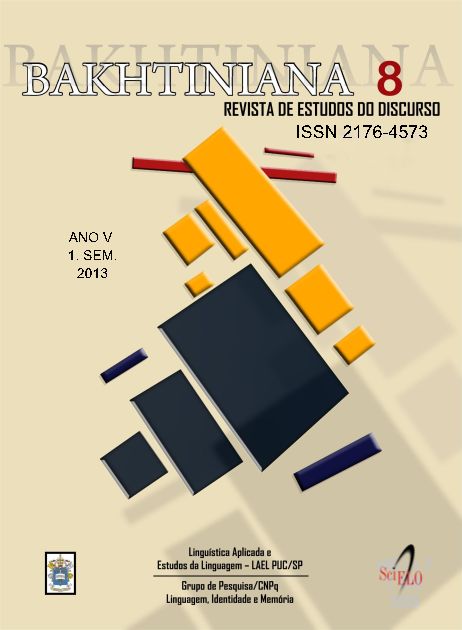O discurso citado na construção do ethos: análise discursivo-argumentativa de O país do carnaval, de Jorge Amado
Mots-clés :
Discurso citado, Ethos, Romance, Jorge AmadoRésumé
O objetivo deste trabalho é apresentar uma análise discursivo-argumentativa do romance O país do carnaval, de Jorge Amado, focalizando as categorias do discurso citado e do ethos discursivo. Parte do pressuposto de que o ethos do romancista é construído com base no diálogo entre o “seu” discurso e as posições e valores ideológicos do discurso alheio. E assim articula o conceito de discurso citado postulado pelo Círculo de Bakhtin e o conceito de heterogeneidade enunciativa formulado por Authier-Revuz, para compreender os mecanismos de construção do ethos discursivo: um modo de dizer e de ser sócio-historicamente reconhecido, que legitima a inscrição do discurso numa determinada formação discursiva. Desse modo, pretende-se depreender o posicionamento ideológico do autor Jorge Amado na polêmica entre os vários discursos que tentam explicar o sentido da vida em O país do carnaval.
Statistiques
Téléchargements
Publié-e
Comment citer
Numéro
Rubrique
Licence
Les auteurs concèdent à la revue tous les droits d’auteurs en ce qui concernent les travaux publiés. Les concepts émis dans les articles signés sont d’absolue et exclusive responsabilité de leurs auteurs.








